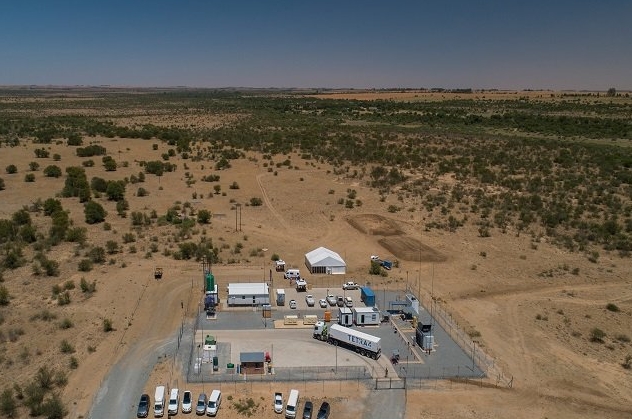Energy group Renergen says it has made “significant progress” in commissioning Phase 1 of its Virginia Gas project.
The Virginia Gas project is the only onshore refinery in South Africa and covers an area including Welkom, Virginia and Theunissen.
It is owned and operated by Renergen through its subsidiary Tetra4. Renergen previously estimated its helium reserves at 9.74 billion cubic metres, more than the known reserves of the entire US.
While helium is perhaps best known for being used in balloons, its benefits go far beyond that. Helium is considered very valuable because of its use in medical scanners, space travel and superconductors. Its special unique properties make it an indispensable component in the manufacture of fibre optic cables, microchips and other electronic equipment.
It is also used to inflate car airbags and in high concentrations in deep-sea diving tanks.
In a statement to shareholders on Tuesday (5 May), the group said it was currently under preparation and all safety measures were being taken to ensure there were no problems.
“The cooling chambers are currently being purged and pre-cooled with liquid nitrogen, which is an important process to prepare the units for receipt of gas from the field next week. The main advantage of using nitrogen to cool the system is that it simultaneously clears the system of oxygen-rich air, which significantly reduces the risks associated with fire during start-up.
“Further tests are underway as part of the commissioning process and the company will keep the market informed as milestones are reached. We have already completed and commissioned the fire protection, instrumentation and control systems and various smaller subsystems. The conductive oil system is the next important element that needs to be completed to get the process plant up and running.”
Renergen CEO Stefano Marani added that his team is “extremely thorough and diligent” in making sure that every step in the commissioning process is carried out correctly.
“A key area that has been successfully completed is the testing and re-testing of fire protection systems, especially in light of all the recent accidents at plants around the world. To see the plant at cryogenic temperatures is such an amazing sight, knowing that it will soon become the first commercial plant of its kind in South Africa,” he said.

